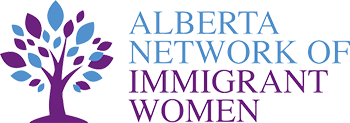To request a copy of the research, email info@aniw.org
On Recognition of Foreign Credentials
Is a profile of who are the international trained physicians.
The paper provides an in-depth examination of the deficit of physicians in Canada in addition to explanations for the course of action taken by IMGs to be able to practice medicine in Canada. Residency issues are explored with their effect on IMGs
The Alberta International Medical Graduate Program (AIMPG) will discuss the possible solutions to counteracting preceptor shortages. Preceptor shortage has been linked to smaller residency training programs and, consequently, a climbing rate of under-employed/unemployed International Medical Graduates.
This report discusses the debate of whether assessment of foreign medical training should be judged on competency and merit rather than in comparison to Canada’s standards. To protect human rights and prevent further violations, solutions are discussed.
Unlicensed International Medical Graduates (IMGs) are a concern for the human capital of Canada. Seeing as approximately half in Alberta are unemployed and only a few hold jobs related to their medical training and background, the paper implicates expanding post-graduate training positions to help IMGs have a better chance at obtaining a license to practice medicine.
The Alberta Network of Immigrant Women (ANIW) will talk about foreign credentials as well as instructions concerning how to achieve recognition of past experience and education for foreign-trained professionals. Therefore, changing policies could remove some barriers for obtaining licensure for the internationally trained community without risking current standard health care.
Accreditation is a process that includes both external and internal challenges for internationally trained individuals. This paper provides suggestions as to how Canada can help foreign professionals better integrate into Canadian society.
Looking at a sample of nurses from the Filipino Nurses’ Association and Domestic Workers’ Association, the paper will themes found throughout the interviews and focus-group discussions, such as challenges to the application process and financial impacts. Recommendations for how to compensate for these obstacles are also given.
On Economic Security
This paper will look at the struggles immigrant women face as they attempt to integrate into Canadian economics. A lack of economic security and financial literacy gives rise to numerous other issues such as lack of access to affordable housing or employment opportunities.
This manual helps immigrant women familiarize themselves with financial literacy to get closer to economic security by providing 12 modules in various economic areas as well as multiple resources for support
A manual is prepared to help immigrant seniors in being independent and build financial literacy. Four modules are presented: income for immigrant seniors, housing, help at home, and planning for the future.
This report documents immigrant women’s experiences of discrimination in hiring practices in Alberta. It covers results from focus group discussions with immigrant women and HR allies, and findings from a community conversation symposium. Specifically, this report examines three themes which emerged from the focus group discussions, and the recommendations given during the community conversation: (1) Barriers to employment, (2) HR solutions, and (3) Recommendations.
On Workplace Issues
The presence of barriers to equitable treatment of immigrant women in the workplace are identified. Systemic issues, funding issues, workplace issues and barriers were identified and suggestions as to how to reduce these barriers were given.
Five studies are looked at to further understand internalized racism. Strategies are suggested for challenging systemic and internalized racism.
This project looks into anti-racism and identifying organizations that offer programs for healing from racism.
There is a gap between available services and the lack of service for helping people to heal from racism as well as discuss internalized racism. Narratives from focus groups show the effect of internalized racism and strategies of possible how to overcome it. A literature review identifies existing forms of healing from racism.
Developing an Internalized Racism Scale (IRS) with a set of criteria to identify internalized racism and increase awareness of its effects and developing a manual to initiate the discussion of the issue are presented in the report. This is to promote healing and develop community programs to support those who experienced it.
The research includes the community’s perspective on racism and the harm it can cause. The sample is small but very relevant to our times. 2016 Published in International Journal of Migration, Health and Social Care.
On Mentorship
To open opportunities for immigrant women to participate in the economic, social, and cultural life of Canada, types of mentorships, opportunities to lead and support are highly recommended. This research is to enhance their participation in the community.
The intention of this project is to encourage women’s leadership and contribute in community organizations. Challenges and contributions of non-profit organizations and immigrant and/or racialized women (IRW) are examined.


